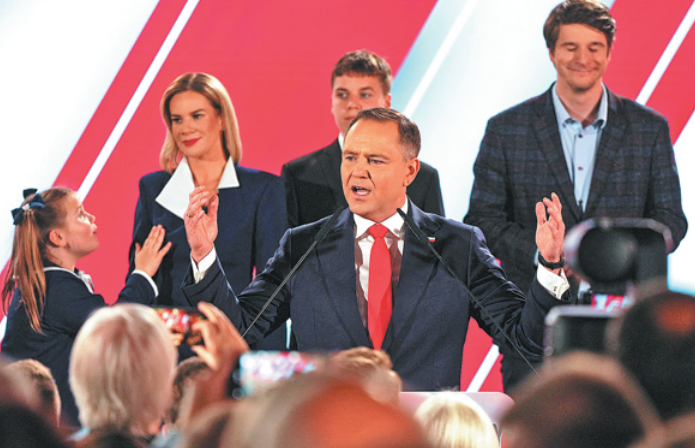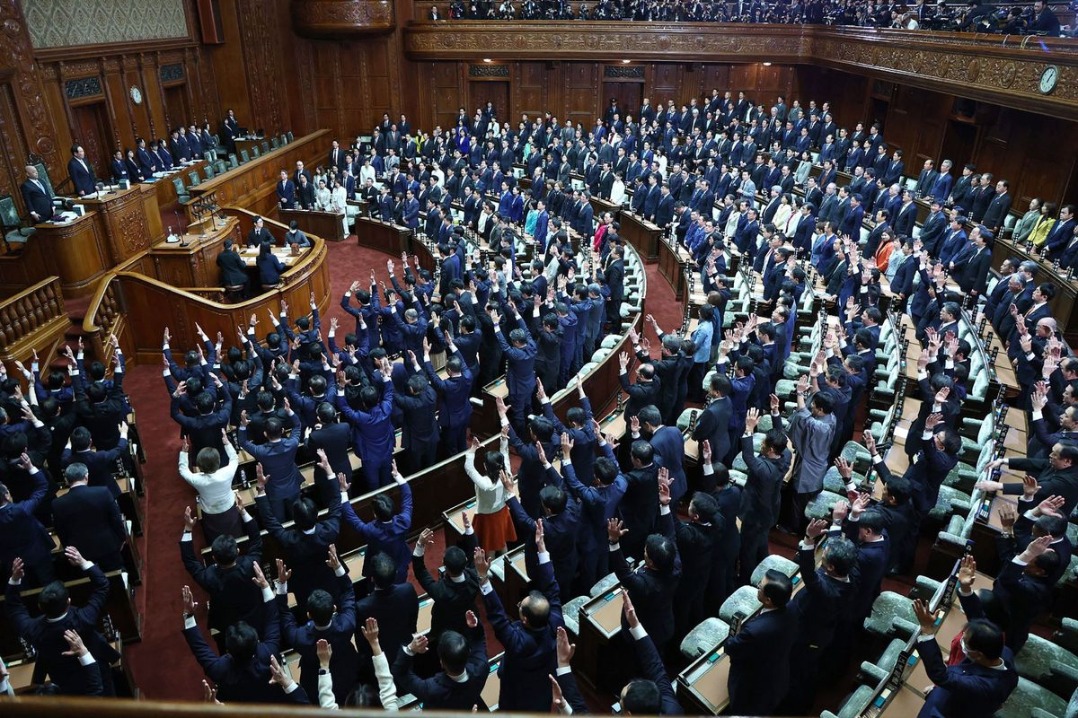Right-wing candidate Nawrocki wins Poland's presidential election


Right-wing candidate Karol Nawrocki has won Poland's presidential election in a major victory for the country's opposition.
Conservative historian Nawrocki secured 50.9 percent of Sunday's vote in a tight contest against liberal Warsaw Mayor Rafal Trzaskowski, who received 49.1 percent, according to the state electoral commission, or PKW.
The result indicates Poland will likely shift toward a more hard-line nationalist path under its new president, who had received backing from US President Donald Trump, reported The Associated Press.
Analysts say the result deals a major blow to Prime Minister Donald Tusk's reform agenda, as Nawrocki's presidential veto power will likely block any significant legislation before the 2027 parliamentary election.
While most day-to-day power rests with the parliament-chosen prime minister, the Polish president wields significant influence over foreign policy.
Nawrocki will succeed conservative Andrzej Duda on Aug 6 and serve a five-year term, with the option for one reelection.
Aleks Szczerbiak, a professor in European politics at the University of Sussex in the United Kingdom, told The Guardian newspaper: "Tusk knows the stakes and that if Nawrocki wins, he's got a lame-duck administration for the next couple of years. And it will be worse than with Duda as Nawrocki will come in fresh, with a new mandate from what effectively turned into a referendum on the government."
The night took a dramatic turn from the initial exit polls published at 9 pm on Sunday, which showed Trzaskowski leading with 50.3 percent to Nawrocki's 49.7 percent.
Trzaskowski had claimed victory, telling supporters "we won, although the phrase 'razor's edge' will forever enter the Polish language and politics".
In a speech at his campaign headquarters, Nawrocki remained optimistic, saying: "Let's not lose hope for this night. We will win during the night, the difference is minimal. I believe that we will wake up tomorrow with President Karol Nawrocki."
Tusk's coalition government, which took power in late 2023, has struggled to implement key reforms due to ideological divisions within its ranks and President Duda's use of veto powers.
The outgoing president has blocked attempts to reverse controversial judicial reforms that the European Union deemed undemocratic, a pattern likely to continue under Nawrocki's presidency.
Political analysts suggest this deadlock could destabilize Tusk's government before the 2027 parliamentary election, especially if opposition parties manage to attract conservative members of his coalition.
The victory is expected to galvanize Nawrocki's allies in the national conservative Law and Justice, or PiS, opposition, which lost power 18 months ago, fueling their confidence about defeating Tusk's coalition in 2027.
"This is truly a special moment in Poland's history," said Nawrocki on Monday.
"I am convinced that it will allow us to move forward and focus on the future," he added.
European Commission President Ursula von der Leyen on Monday congratulated Nawrocki on winning the election, adding she was "confident" that "very good cooperation" would continue with Warsaw.
"We are all stronger together in our community of peace, democracy, and values. So let us work to ensure the security and prosperity of our common home," she said on X.
Agencies contributed to this story.
































